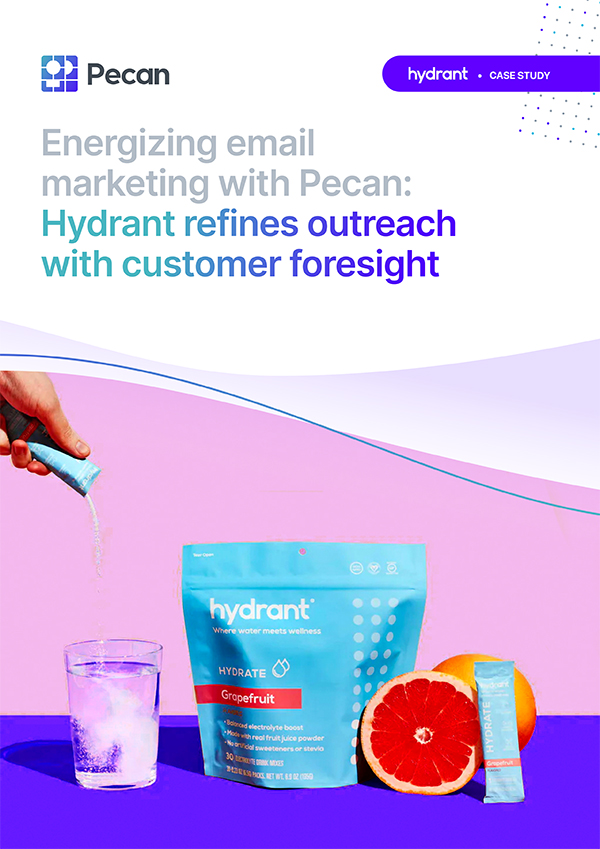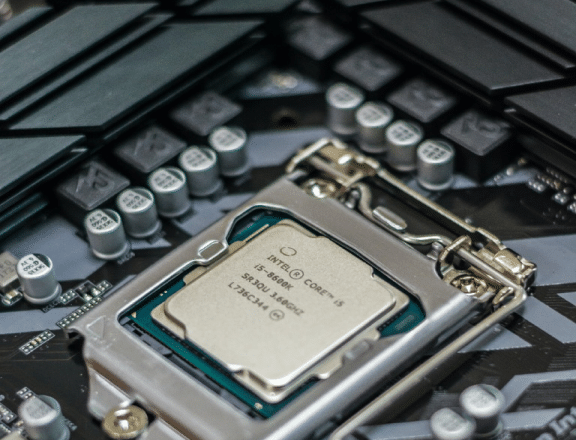Hydrant, a wellness brand founded in 2018 in New York, sells drink mixes both through their own ecommerce channel and through retail partners like Whole Foods. When Hydrant wanted to rehydrate their customer retention strategy and win back more previous purchasers, they turned to predictive analytics with Pecan. Hydrant wanted to understand which customers were more likely to churn and which past customers could be enticed back.
Challenge
Refining email offers to focus on customers’ buying patterns
Hydrant heavily relies on email marketing to bring customers to their e-commerce site. They struggled to provide offers based on defined customer segments, detailed knowledge of customer preferences, or their likelihood of response. The goal of using Pecan was to improve email marketing conversion rates and optimize marketing budgets. They hoped to identify:
- Customers who were most likely to place another order
- Customers who would convert from single purchases to subscribers
- Churned customers with the potential to be won back for another purchase.
Solution
Hydrant relies on Klaviyo for marketing automation, Shopify for e-commerce, and brings all their customer data together in Snowflake. The Pecan platform was connected across their end-to-end stack. Pecan retrieves modeling data directly from Snowflake, and feeds predictions back into campaigns managed in Klaviyo.
The churn model – built in just 2 weeks using Pecan – analyzed thousands of customers’ purchase history over 180 days. The model generates granular predictions for each customer’s likelihood to churn. With those precise individual predictions, Hydrant can flexibly group customers to receive specific marketing messages and discounts that align with their future purchasing potential.
Results
Pecan’s churn model predictions closely matched customers’ actual future behavior. Of the customers predicted by the Pecan model to be least likely to churn, less than 2 percent ended up not returning to Hydrant. Of those customers predicted to be most likely to churn, over 83% did indeed churn.
Knowing customers’ likely future behavior allowed Hydrant to focus marketing efforts on the customers who would stick around to buy again. They also conserved resources by not offering discounts to customers who would return without incentives.
Using Pecan, the team also built a model to predict winback. This model analyzed data for customers who had not made a purchase for at least 2 months and then predicted whether the customers would buy again in the following 30 days. Hydrant quickly generated predictions of customers’ future purchasing behavior based on their activity in the last 60, 90, 120, 150, and 180 days.
In winback campaign A/B testing, Pecan’s predictions resulted in a higher winback rate than the control groups. Customers predicted to have the lowest chance of purchasing again were sent targeted offers. That group had a 2.6x higher conversion rate and a 3.1x higher average revenue per customer than a control group.
Using Pecan has helped Hydrant more accurately understand customers’ future behavior, optimize marketing spend, and empower proactive planning. Just like Hydrant’s products re-energize their customers for peak performance, Pecan’s predictive analytics has brought new energy to their marketing strategy.







